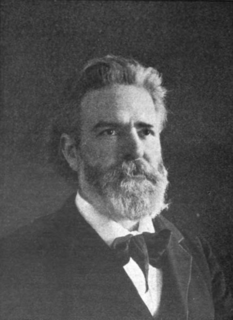A Quote by Frederick William Robertson
Never does a man know the force that is in him till some mighty affliction or grief has humanized the soul.
Related Quotes
Defeat may serve as well as victory To shake the soul and let the glory out. When the great oak is straining in the wind, The boughs drink in new beauty and the trunk Sends down a deeper root on the windward side. Only the soul that knows the mighty grief Can know the mighty rapture, Sorrows come To stretch out spaces in the heart for joy.
Secrecy is the keystone to all tyranny. Not force, but secrecy and censorship. When any government or church for that matter, undertakes to say to its subjects, "This you may not read, this you must not know," the end result is tyranny and oppression, no matter how holy the motives. Mighty little force is needed to control a man who has been hoodwinked in this fashion; contrariwise, no amount of force can control a free man, whose mind is free. No, not the rack nor the atomic bomb, not anything. You can't conquer a free man; the most you can do is kill him.
I think, that a man never passes the verge of moral humility, till self-righteousness be dethroned, till the high and towering imaginations of the man's own righteousness by the law be levelled by the mighty weapons of the gospel, and he brought to submit to the righteousness of God for justification, which is, in the gospel revealed 'from faith to faith.'
The Soul is a fact, but it is not physical. ... Survivors of near-death experiences attest that some part of them apparently detaches from their physical bodies following the death of the body, but while that is proof of the soul for them, it does not prove it to us. The Soul is like divine music that only God can hear; it is the force of endless resurrection; the soul is like a fire that never goes out.
When a man's eyes are sore his friends do not let him finger them, however much he wishes to, nor do they themselves touch the inflammation: But a man sunk in grief suffers every chance comer to stir and augment his affliction like a running sore; and by reason of the fingering and consequent irritation it hardens into a serious and intractable evil.
The libertarian approach is a very symmetrical one: the non-aggression principle does not rule out force, but only the initiation of force. In other words, you are permitted to use force only in response to some else's use of force. If they do not use force you may not use force yourself. There is a symmetry here: force for force, but no force if no force was used.
The woods are never solitary — they are full of whispering, beckoning, friendly life. But the sea is a mighty soul, forever moaning of some great, unshareable sorrow, which shuts it up into itself for all eternity. We can never pierce its infinite mystery — we may only wander, awed and spellbound, on the outer fringe of it. The woods call to us with a hundred voices, but the sea has one only — a mighty voice.


































